- Home
- Captain W E Johns
05 Biggles Learns To Fly
05 Biggles Learns To Fly Read online
Author's Note
The printing of this book is the answer to those who have asked when and where Biggles learned to fly. It was written many years ago, while the events were fresh in the author's mind, long before there was any talk of Hitler and a Second World War. The sons of some of the boys who read it then now fly jets. Time marches on—and in aviation it has marched very fast indeed. But this was the beginning, and the beginning of Biggles.
To readers of the modern Biggles books these early adventures may seem strange, both in the terms used and in the style of conversation. But Biggles was very young then. So was the Air Service. In fact, there was no air service. Fighting planes were flown by officers seconded from the Army (the R.F.C.) and the Navy (Royal Naval Air Service).
When Biggles (and the author) learned to fly, aeroplanes and equipment, by modern standards, were primitive. Combat tactics, as they are understood today, were unknown.
Every pilot had his own method and, if he lived long enough, picked up a few tricks from the old hands. Once in the air he could more or less do as he pleased, for he was out of touch with the ground except by simple visual signals.
Communication between aircraft, or between pilot and gunner, was also by hand signals.
Crossed fingers meant an enemy aircraft. First finger and thumb in the form of a circle meant British aircraft. Thumbs up meant all was well. Thumbs down—well, not so good. One also signalled the approach of enemy aircraft by rocking one's wings.
As the reader may guess, the writer's own experiences were much the same as those described herein. A few flights, and off you went solo. A few hours solo, and off you went to war, to take your luck. Casualties, of course, were grim; but all the same, happy-go-lucky were those days that have now become history. The mystery is that anyone survived, for apart from the risks of battle, structural failure was common, and there were no parachutes. On the other hand, the machines being slow, and made of wood, wire and fabric, one had a better chance in a crash than in the modern high-performance fighter.
The word 'Hun', as used in this book, was the common generic term for anything belonging to the enemy. It was used in a familiar sense, rather than derogatory. Witness the fact that in the R.F.C. a hun was also a pupil at a flying training school.
Chapter 1
First Time Up!
One fine late September morning in the war-stricken year of 1916, a young officer, in the distinctive uniform of the Royal Flying Corps, appeared in the doorway of one of the long, low, narrow wooden huts which, mushroom-like, had sprung up all over England during the previous eighteen months. He paused for a moment to regard a great open expanse that stretched away as far as he could see before him in the thin autumn mist that made everything outside a radius of a few hundred yards seem shadowy and vague.
There was little about him to distinguish him from thousands of others in whose ears the call to arms had not sounded in vain, and who were doing precisely the same thing in various parts of the country. His uniform was still free from the marks of war that would eventually stain it. His Sam Browne belt still squeaked slightly when he moved, like a pair of new boots.
There was nothing remarkable, or even martial, about his physique; on the contrary, he was slim, rather below average height, and delicate-looking. A wisp of fair hair protruded from one side of his rakishly tilted R.F.C. cap; his eyes, now sparkling with pleasurable anticipation, were what is usually called hazel. His features were finely cut, but the squareness of his chin and the firm line of his mouth revealed a certain dog-gedness, a tenacity of purpose, that denied any sugges-
tion of weakness. Only his hands were small and white, and might have been those of a girl.
His youthfulness was apparent. He might have reached the eighteen years shown on his papers, but his birth certificate, had he produced it at the recruiting office, would have revealed that he would not attain that age for another eleven months. Like many others who had left school to plunge straight into the war, he had conveniently 'lost' his birth certificate when applying for enlistment, nearly three months previously.
A heavy, hair-lined leather coat, which looked large enough for a man twice his size, hung stiffly over his left arm. In his right hand he held a flying-helmet, also of leather but lined with fur, a pair of huge gauntlets, with coarse, yellowish hair on the backs, and a pair of goggles.
He started as the silence was shattered by a reverbererating roar which rose to a mighty crescendo and then died away to a low splutter. The sound, which he knew was the roar of an aero-engine, although he had never been so close to one before, came from a row of giant structures that loomed dimly through the now-dispersing mist, along one side of the bleak expanse upon which he gazed with eager anticipation. There was little enough to see, yet he had visualized that flat area of sandy soil, set with short, coarse grass, a thousand times during the past two months while he had been at the 'ground' school. It was an aerodrome, or, to be more precise, the aerodrome of No. 17 Flying Training School, which was situated near the village of Settling, in Norfolk. The great, darkly looming buildings were the hangars that housed the extraordinary collection of hastily built aeroplanes which at this period of the first Great War* were used to teach pupils the art of flying.
A faint smell was borne to his nostrils, a curious aroma that brought a slight flush to his cheeks. It was one common to all aerodromes, a mingling of petrol, oil, dope**, and burnt gases, and which, once experienced, was never forgotten.
Figures, all carrying flying-kit, began to emerge from other huts and hurry towards the hangars, where strange-looking vehicles were now being wheeled out on to a strip of concrete that shone whitely along the front of the hangars for their entire length. After a last appraising glance around, the new officer set off at a brisk pace in their direction.
A chilly breeze had sprung up; it swept aside the curtain of mist and exposed the white orb of the sun, low in the sky, for it was still very early. Yet it was daylight, and no daylight was wasted at flying schools. during the Great War.
He reached the nearest hangar, and then stopped, eyes devouring an extraordinary structure of wood, wire, and canvas that stood in his path. A propeller, set behind two exposed seats, revolved slowly. Beside it stood a tall, thin man in flying-kit; his leather flying-coat, which was filthy beyond description with oil stains, flapped open, exposing an equally dirty tunic, on the breast of which a device in the form of a small pair of wings could just be seen. Under them was a
* The First World War 19l4—I8. Principal contenders, the Allies: Britain, France, Russia, Italy, Serbia, Belgium, Japan (1910, Romania (1916), USA (1917). Against the Central Powers: Germany, Austria-Hungary, Turkey and Bulgaria (1910.
** Liquid similar to varnish, applied to the fabric surfaces to stiffen and weatherproof them.
tiny strip of the violet-and-white ribbon of the Military Cross.
To a fully fledged pilot the figure would have been commonplace enough, but the young newcomer regarded him with an awe that amounted almost to worship. He knew that the tall, thin man could fly; not only could he fly, but he had fought other aeroplanes in the sky, as the decoration on his breast proved. At that moment, however, he seemed merely bored, for he yawned mightily as he stared at the aeroplane with no sign of interest.
Then, turning suddenly, he saw the newcomer watching him.
`You one of the fellows on the new course?' he asked shortly.
Èr—er—yes, sir,' was the startled reply.
Èver been in the air?'
`No, sir.'
`What's your name?'
`Bigglesworth, sir. I'm afraid it's a bit of a mouthful, but that isn't my fault. Most people call me Biggles for short.'
A slow smile spread over the face of the instructor.
`Sensible idea,' he said. Àll right, Biggles, get in.'
Biggles started violently. He knew that he had come to the aerodrome to learn to fly, but at the back of his mind he had an idea that there would be some sort of ceremony about it, some preliminary overtures that would slowly lead up to a grand finale in which he would take his place in an aeroplane before the eyes of admiring mechanics. And now the instructor had just said 'Get in!' as if the aeroplane were a common motorcar.
Mechanics were there, it is true, but they were getting on with their work, taking not the slightest notice of the thrilling exploit about to be enacted. Only one, a corporal, was standing near the nose of the machine looking round the sky with a half-vacant expression on his face.
In something like a daze, Biggles donned his flying-kit. It was the first time he had worn it, and he felt that the weight of it would bear him to the ground. Stiffly he approached the machine.
`Look out!'
He sprang back as the shrill warning came faintly to his ears through the thick helmet.
The instructor was glaring at him, his face convulsed with rage.
`What are you trying to do?' he roared. 'Break my propeller with your head? Come round to the front!'
`Sorry, sir,' gasped Biggles, and hurried as fast as his heavy kit would permit to the front of the machine. He raised his foot and clutched at a wire to help him up.
`Not there, you fool! Take your foot off that wing before you burst the fabric!' shouted the instructor from his seat.
Biggles backed away hastily—too hastily; his foot caught in one of the many wires that ran in all directions. He clutched wildly at the leading edge of the lower 'plane to save himself, but in vain, and the next instant he had measured his length on the ground.
The instructor looked down at him with such withering contempt that Biggles nearly burst into tears. The corporal came to his assistance. 'Put your left foot in that hole—now the other one in there—now swing yourself up. That's right!'.
To Biggles the cockpit seemed hopelessly inadequate, but he squeezed himself into it somehow and settled down with a sigh of relief. Something struck him smartly on the back of the head, and he jumped violently.
`Strap in,' said a hard voice, 'and keep your hands and feet off the controls. If you start any nonsense I'll lam you over the back of the skull with this!'
With some difficulty Biggles screwed his head round to see what 'this' was. A large iron wrench was thrust under his nose; at the same moment the machine began to move forward, slowly at first, but with ever-increasing speed.
Something like panic seized him, and he struggled wildly to buckle up the cumbrous leather belt that he could see on either side of him. It took him a minute to realize that he was sitting on it. 'If he loops the loop or something I'm sunk!' he muttered bitterly, as he fought to pull it from under him. The machine seemed to lurch suddenly, and he grabbed both sides of the cockpit, looking down as he did so. The hangars were just disappearing below.
The next few minutes, which seemed an hour, were a nightmare. The machine rose and fell in a series of sickening movements; every now and then one of the wings would tip up at an alarming angle. He was capable of the one thought only: 'I shall never fly this thing as long as I live—never. I must have been crazy to think I could.'
Woods, fields, and houses passed below in bewildering succession, each looking like its fellow. Had the pilot told him they were over any county in the United Kingdom, he would have believed him.
`We must have gone fifty miles away from the aerodrome,' he thought presently; but the nose of the machine tilted down, and he saw the hangars leaping up towards him. For a moment he really did not believe
they were the hangars; he thought it was a trick of the imagination. But there was a sudden grinding of wheels, and before he really grasped what was happening, the machine had run to a standstill in exactly the same spot from which it had taken off. He surveyed the apparent miracle with wonderment, making no effort to move.
`Well, how did you like it?' said a voice in his ear.
Biggles clambered awkwardly from his seat and turned to the speaker. The instructor was actually smiling.
`Grand!' he cried enthusiastically. 'Top hole.' `Didn't feel sick?'
`Not a bit.'
Ìt's a wonder. It's bumpy enough to make anyone sick; we shall have to pack up flying if it doesn't get better. Let's go and mark your time up on the board. Enter up your logbook. "First flight. Air experience five minutes." '
`Five minutes!' cried Biggles incredulously. 'We were only up five minutes? I thought we were at least half an hour.'
The instructor had stopped before a notice-board headed "A" Flight,' below which was a list of names.
`What did you say your name was?' he asked, a frown lining his forehead.
`Bigglesworth, sir.'
`What flight are you in?'
`Flight? I don't know, sir.'
`You don't know?' snarled the instructor. 'Then what the dickens do you mean by wasting my time? What were you loafing about here for? These are "A" Flight sheds.'
Biggles stepped back quickly in his nervousness; his
heel struck a chock, and he grabbed wildly at a passing officer to save himself from falling.
`Hi! Not so much of the clutching hand!' growled a
voice. 'This is a flying ground, not a wrestling school.' `Sorry!' cried Biggles, aghast, detaching himself. `Your name isn't Bigglesworth, by any chance, is it?'
went on the officer, a short, thick-set man with a frightful scar on his face that reached from the corner of one
eye to his chin.
`Why, yes, sir,' replied Biggles hesitatingly.
`Then what are you doing down here? You're in my flight, and you've kept the class waiting.'
Ì've been flying, sir,' protested Biggles.
`You've been what?'
`He's right!' grumbled the first instructor. 'He was down here, so I naturally thought he was one of my fellows. I wish you'd look after your own pupils!'
Biggles waited for no more, but hurried along the tarmac to where a little group of officers—all pupils, judging by their spotless uniforms—stood at the door of a hangar.
`Where have you been?' cried one. `Nerky's been blinding you to all eternity!'
`Nerky?'
`Captain Nerkinson. We call him Nerky because he's as nerky as they make 'em! He's crashed about ten times, so you can't blame him. Look out, here he comes!'
`Well, don't let us waste any more time,' began the instructor. 'Gather round this machine while I tell you something about it.'
The pupils formed a respectful semi-circle round the machine he had indicated.
`This aeroplane,' he began, 'is called a Maurice
Farman Shorthorn, chiefly because it hasn't any horns, short or otherwise. Some people call it a Rumpity. Others call it a birdcage, because of the number of wires it has got. The easiest way to find out if all the wires are in their places is to put a canary between the wings; if the bird gets out, you know there is a wire missing somewhere.
• 'Always remember that if this machine gets into a spin, it never gets out of it; and if it gets into a dive, the wings are apt to come off. Presently I shall take you up in it, one at a time; if anybody doesn't like it, he has only to say so, and he can transfer to the infantry.'
His voice trailed away to a whisper as a faint whistling sound reached their ears. All eyes were staring upwards at a machine that was coming in to land. It was a Rumpity, and it seemed to be descending in short jerks, as if coming down an invisible staircase; the pilot could seen sitting bolt upright in his seat.
A deep groan burst from the instructor's lips, as if he had been suddenly smitten with a violent pain.
`That's Rafferty, I'll bet my hide!' he muttered. 'I thought I'd cured him of that habit.
Watch him, everybody, and you'll see the answer to the question why instr
uctors go mad!
'
Everybody on the tarmac was watching the machine, Biggles with a curious mixture of fear and fascination. A motor-truck, with a dozen mechanics carrying Pyrene fire-extinguishers hanging on to it, was already moving out on to the aerodrome in anticipation of the crash.
The pilot of the descending machine continued to swoop downwards in a series of short jerks. At the last moment he seemed to realize his danger, and must have pulled the joystick back into his stomach, for the machine reared up like a startled horse and then slid back, tail first, to the ground. There was a terrific crash of breaking woodwork and tearing fabric, and the machine collapsed in a cloud of flying splinters.
The pilot shot out of his seat as if propelled by an invisible spring, and rolled over and over along the ground like a shot rabbit. Then, to the utter astonishment of everybody, he rose to his feet and rubbed the back of his head ruefully. A shout of laughter rose into the air from the spectators.
Captain Nerkinson nodded soberly.
`You have just seen a beautiful picture,' he said, 'of how not to land an aeroplane!'
Chapter 2
Landed—But Lost
A week later, a Rumpity landed on the aerodrome, and Captain Nerkinson swung himself to the ground. Biggles, in the front cockpit, was about to follow, but the instructor stopped him.
`You're absolutely O.K.,' he said, 'except that you are inclined to come in a bit too fast.
Don't forget that. Off you go!'
Òff I what?' cried Biggles, refusing to believe his ears.
`You heard me. You're as right as rain—but don't be more than ten minutes.'
Ì won't —by James I won't, you can bet your life on that!' declared Biggles emphatically. He took a last lingering survey of the aerodrome, as when a swimmer who has climbed up to the high diving-board for the first time looks down. Then, suddenly making up his mind, he thrust the throttle open with a despairing jerk and grabbed at the weird, spectacle-like arrangement that served as a joy-stick in the Rumpity.
The machine leapt forward and careered wildly in a wide circle towards the distant hedge. For a moment, as the machine started to swing, Biggles thought he was going to turn a complete circle and charge the hangars; but he kept his head, and straightened it.

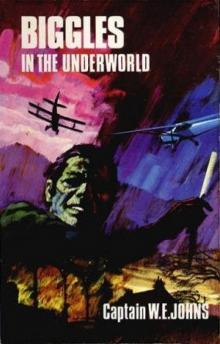 Biggles in the Underworld
Biggles in the Underworld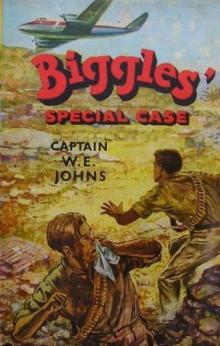 Biggles' Special Case
Biggles' Special Case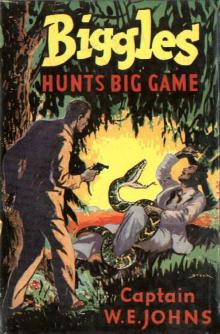 34 Biggles Hunts Big Game
34 Biggles Hunts Big Game 03 Now To The Stars
03 Now To The Stars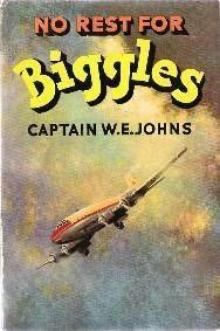 55 No Rest For Biggles
55 No Rest For Biggles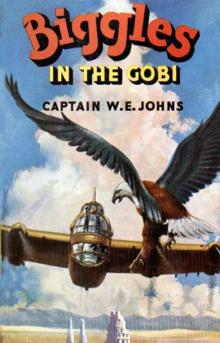 46 Biggles in the Gobi
46 Biggles in the Gobi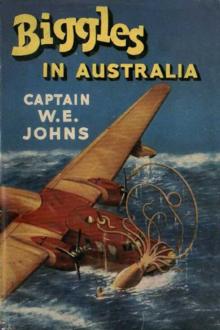 52 Biggles In Australia
52 Biggles In Australia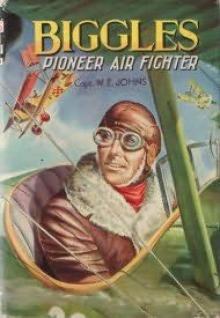 51 Biggles Pioneer Air Fighter
51 Biggles Pioneer Air Fighter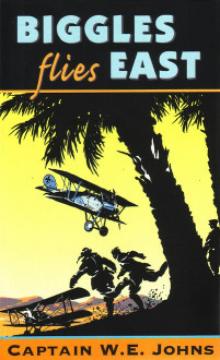 05 Biggles Flies East
05 Biggles Flies East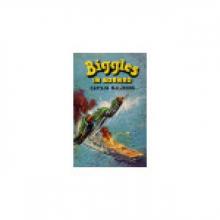 28 Biggles In Borneo
28 Biggles In Borneo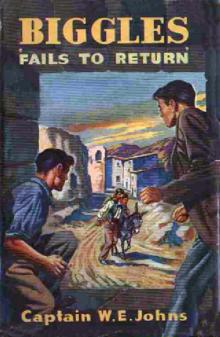 29 Biggles Fails to Return
29 Biggles Fails to Return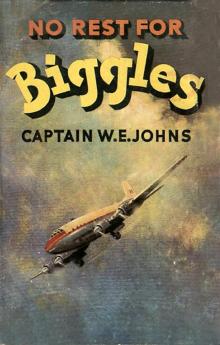 55 No Rest For Biggles (v2)
55 No Rest For Biggles (v2)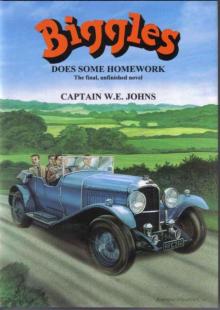 Biggles Does Some Homework
Biggles Does Some Homework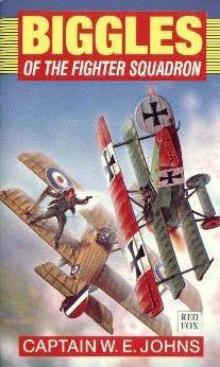 Biggles of the Camel Squadron
Biggles of the Camel Squadron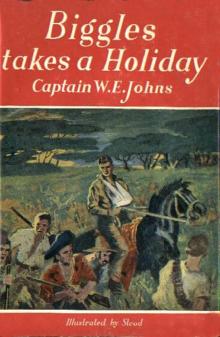 35 Biggles Takes A Holiday
35 Biggles Takes A Holiday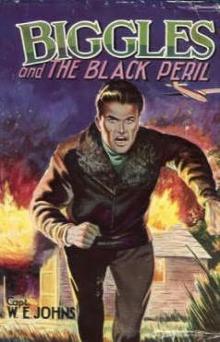 Biggles And The Black Peril (06)
Biggles And The Black Peril (06)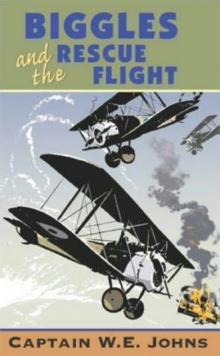 17 Biggles And The Rescue Flight
17 Biggles And The Rescue Flight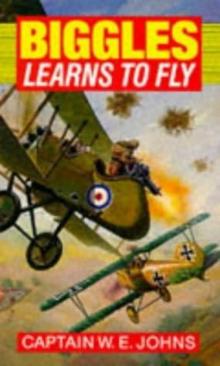 Biggles Learns To Fly
Biggles Learns To Fly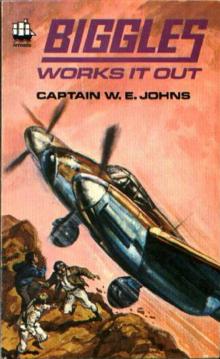 40 Biggles Works It Out
40 Biggles Works It Out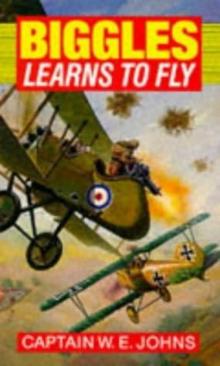 05 Biggles Learns To Fly
05 Biggles Learns To Fly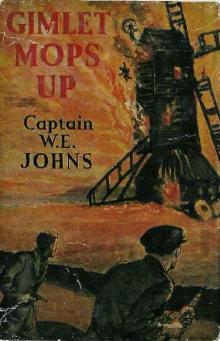 04 Gimlet Mops Up
04 Gimlet Mops Up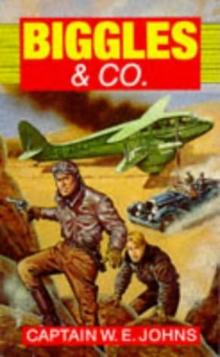 10 Biggles and Co
10 Biggles and Co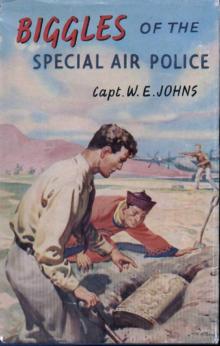 47 Biggles Of The Special Air Police
47 Biggles Of The Special Air Police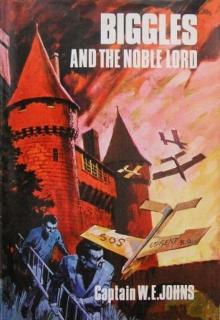 Biggles and the Noble Lord
Biggles and the Noble Lord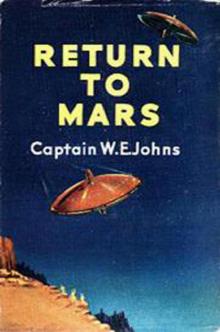 T2 Return To Mars
T2 Return To Mars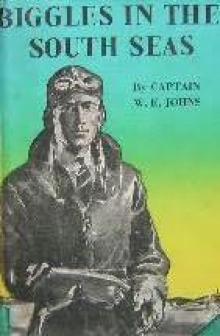 21 Biggles In the South Seas
21 Biggles In the South Seas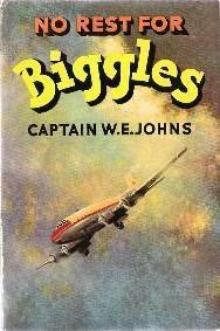 No Rest For Biggles
No Rest For Biggles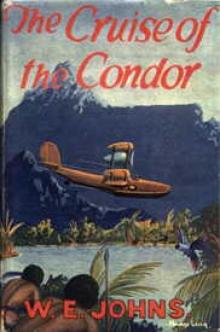 Biggles In The Cruise Of The Condor (02)
Biggles In The Cruise Of The Condor (02)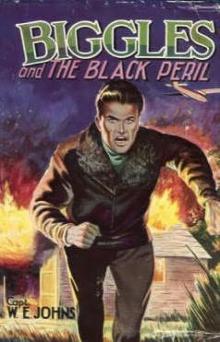 06 Biggles And The Black Peril
06 Biggles And The Black Peril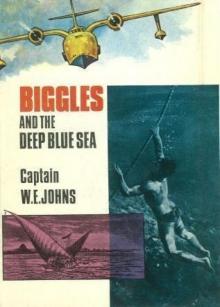 Biggles and the Deep Blue Sea
Biggles and the Deep Blue Sea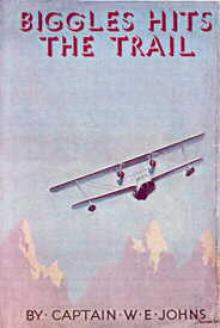 06 Biggles Hits The Trail
06 Biggles Hits The Trail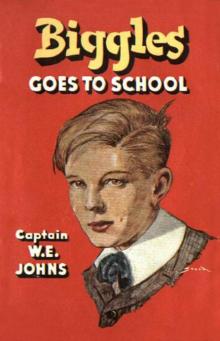 39 Biggles Goes To School
39 Biggles Goes To School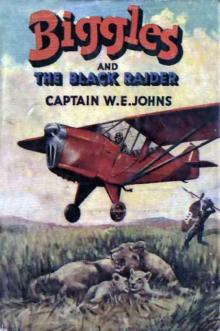 44 Biggles and the Black Raider
44 Biggles and the Black Raider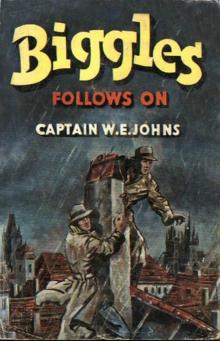 42 Biggles Follows On
42 Biggles Follows On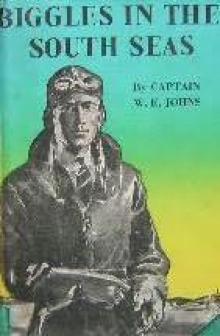 Biggles In the South Seas
Biggles In the South Seas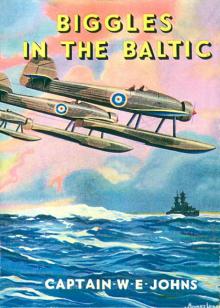 21 Biggles In The Baltic v3
21 Biggles In The Baltic v3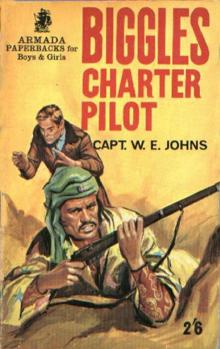 27 Biggles - Charter Pilot
27 Biggles - Charter Pilot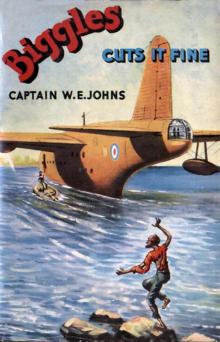 49 Biggles Cuts It Fine
49 Biggles Cuts It Fine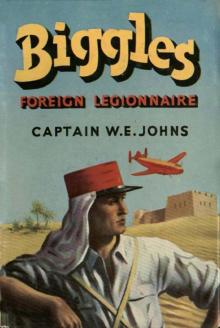 51 Biggles Foreign Legionaire
51 Biggles Foreign Legionaire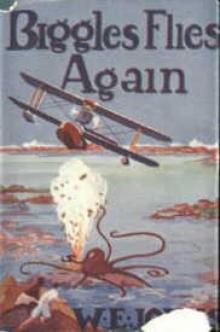 04 Biggles Flies Again
04 Biggles Flies Again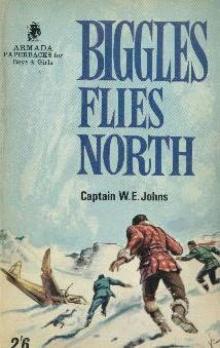 16 Biggles Flies North
16 Biggles Flies North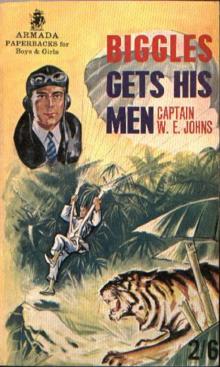 37 Biggles Gets His Men
37 Biggles Gets His Men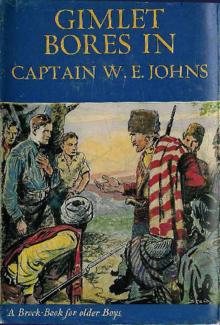 07 Gimlet Bores In
07 Gimlet Bores In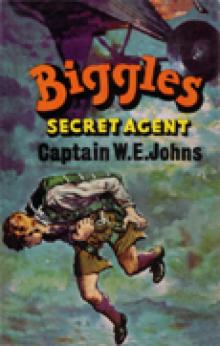 19 Biggles Secret Agent
19 Biggles Secret Agent 32 Biggles In The Orient
32 Biggles In The Orient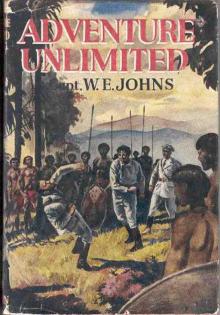 Adventure Unlimited
Adventure Unlimited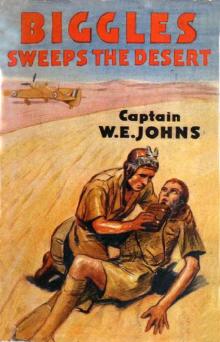 26 Biggles Sweeps The Desert
26 Biggles Sweeps The Desert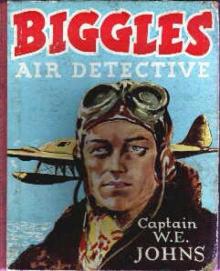 Biggles Air Detective (43)
Biggles Air Detective (43) 36 Biggles Breaks The Silence
36 Biggles Breaks The Silence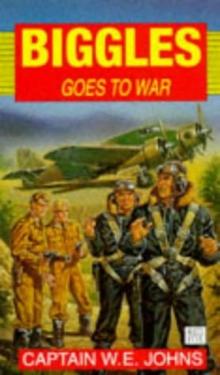 14 Biggles Goes To War
14 Biggles Goes To War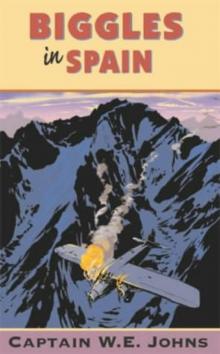 18 Biggles In Spain
18 Biggles In Spain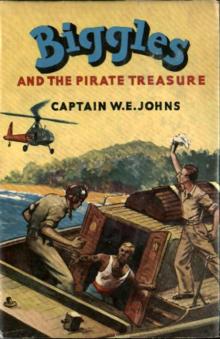 50 Biggles and the Pirate Treasure
50 Biggles and the Pirate Treasure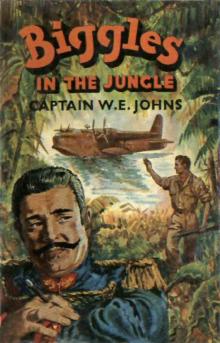 25 Biggles In The Jungle
25 Biggles In The Jungle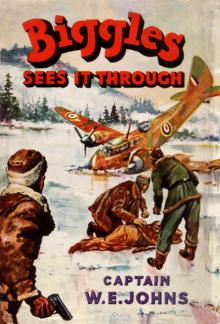 23 Biggles Sees It Through
23 Biggles Sees It Through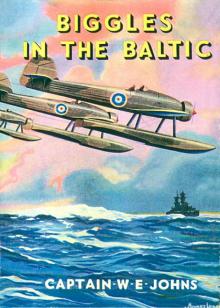 21 Biggles In The Baltic
21 Biggles In The Baltic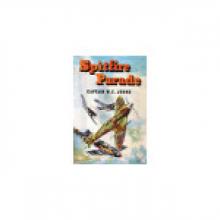 24 Spitfire Parade
24 Spitfire Parade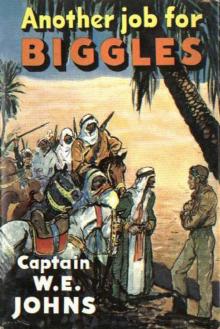 38 Another Job For Biggles
38 Another Job For Biggles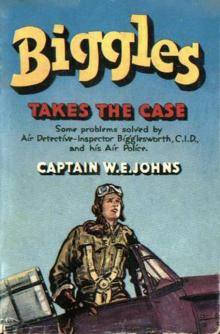 41 Biggles Takes The Case
41 Biggles Takes The Case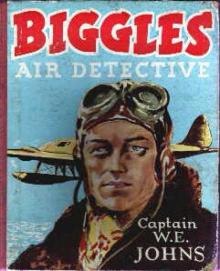 43 Biggles Air Detective
43 Biggles Air Detective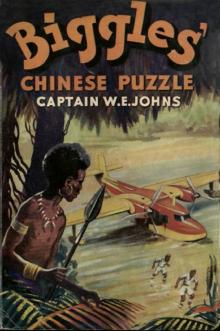 53 Biggles Chinese Puzzle
53 Biggles Chinese Puzzle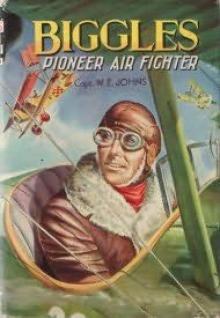 Biggles Pioneer Air Fighter (51)
Biggles Pioneer Air Fighter (51)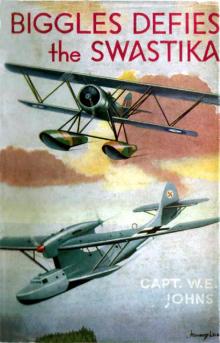 22 Biggles Defies The Swastika
22 Biggles Defies The Swastika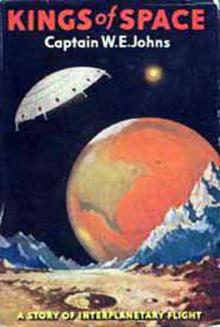 01 Kings Of Space
01 Kings Of Space